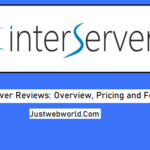With so many options and alternatives to consider, choosing a good web hosting service to use is not always as straightforward as it may seem. Before you can actually find a good service plan, you need to first understand your requirements. These questions we are about to discuss in this article can help you achieve just that in a few simple steps.
Ask Yourself When Choosing Web Hosting Service

What type of content will you be publishing?
This is one of the first questions you should ask yourself before searching for a web hosting service to use. The types of content you will be publishing on your site will greatly determine the amount of disk space you need to host your site. Text and images usually require less space than audio, video and other multimedia content.
A simple WordPress site with around 100 articles, complete with supporting images and design elements, is usually around 200 MB in size. The size may vary depending on the size of your images. Add video and audio files, and you could be needing two or three times as much web hosting space.
How many visitors do you expect to get?
The number of visitors that access your website will also greatly influence the decision you make. Web hosting companies offer service plans with different monthly bandwidth limits. Even unlimited web hosting plans still come with a fair usage policy, which in turn determines just how much traffic your account can actually handle (without incurring charges!)
Let’s say your page is 300 Kb in size when fully loaded. Getting 1,000 visitors means using 300 Mb of the monthly data transfer limit. If you get 1,000 visitors a day, you will be spending around 9 Gb of monthly data transfer a month.
Web hosting service providers usually offer plenty of data transfer quota for customers to use, but there is no harm in checking that you have enough. Nothing hampers the success of a website more than the dreaded “Bandwidth Limit Exceeded” notice users see when you run out of monthly bandwidth.
What platform will you be using?
Whether you are running a well-known CMS or a custom-made web application, it is always necessary to check if the hosting account you are looking into supports the right programming frameworks and server-side scripting languages. If you want to use Joomla, for example, you will need a hosting service with PHP and MySQL support.
Aside from checking for availability, be sure to look into the versions of these frameworks used by the hosting service as well. Not all versions are cross-compatible, and some web applications may require you to meet different minimum requirements for them to work properly.
Another thing this question will shed light on is the server configurations needed. Although two hosting services may support PHP and use the same version of the programming language, they may be configured differently. Depending on your personal requirements, you may want to consult with the hosting company regarding the availability of modules; being able to customize the configurations yourself is a huge plus.
Where are my customers located?
Your target visitors will greatly determine where the server needs to be located. An online store selling crafts to customers in Canada can benefit more from using a server located within the country. Customers will be able to access your site quickly and the overall user experience can be kept at a pleasant level. Even with global routing issues, your site will still be accessible locally. The same goes for other territories. If your website is primarily accessed from the UK, choose a host like this one who have physical servers in the UK or likewise in the US you could use Web.com.
The location of the server, paired with the use of country-specific domain name, will also help boost your website’s local SEO performance. Search engines are prioritizing local businesses and websites when the search is coming from the same area, allowing your site to be discovered by more people due to its prominent position as a result of the above.
What kind of service level do I need?
Last but certainly not least, you need to ask yourself the kind of service you are expecting from the hosting company. Do you need a dedicated server for maximum performance? Do you expect the server to be up 99.9% of the time? You can choose between different types of hosting much effectively this way.
While comparing services, take your time to read their service level agreements. Find out more about the kind of services you can expect from the service. Read testimonials and take advantage of trial periods – or money back guarantee offers from the company – to find out exactly what you are getting from the service.
These questions will help you nail the web hosting requirements and will help you find the right hosting plan. 🙂







1 Comment
if for hosting quick and nice could affect SEO on Google ?